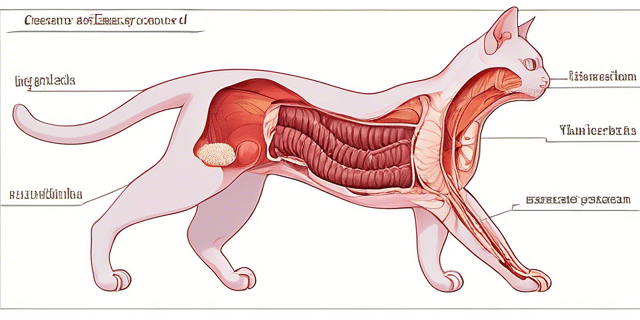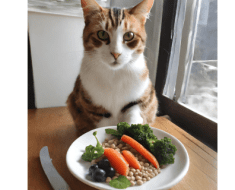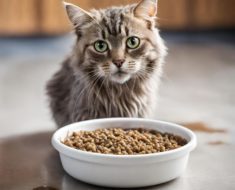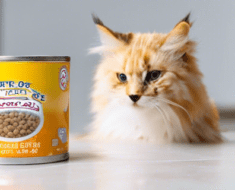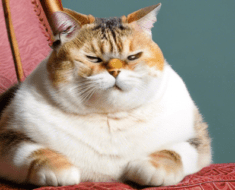As a cat owner, you may have wondered about the digestive process in your feline friend. Understanding how long it takes for a cat to digest food can provide insights into their dietary needs and overall well-being.
The Digestive System of Cats
Cats have a unique digestive system tailored to their carnivorous nature. Their digestive tract is relatively short compared to that of omnivores or herbivores. This design reflects their evolutionary adaptation to efficiently process and absorb nutrients from animal-based diets.
The feline digestive system consists of the mouth, esophagus, stomach, small intestine, and large intestine. Each of these components plays a crucial role in breaking down food, absorbing essential nutrients, and eliminating waste.
Understanding the Digestion Process
When your cat consumes food, the digestion process begins in the mouth, where the teeth and saliva work together to break down the food into smaller pieces. Once swallowed, the food travels down the esophagus and enters the stomach.
The acidic environment of the stomach helps in further breaking down the food and initiating the digestion of proteins. From the stomach, the partially digested food moves into the small intestine, where the majority of nutrient absorption takes place.
Finally, any remaining indigestible material enters the large intestine before being eliminated as waste. This entire process is orchestrated by a combination of muscular contractions, enzymes, and specialized cells that work harmoniously to extract nourishment from the ingested food.
How Long Does It Take?
Now, let’s address the burning question: how long does it take for a cat to digest food? The digestion time for cats can vary depending on several factors, including the type of food consumed, the cat’s age, health condition, and individual metabolic rate.
In general, dry cat food typically takes around 12–16 hours to pass through the feline digestive system. Wet cat food, on the other hand, may take a shorter amount of time, around 4-6 hours, due to its higher water content and increased palatability.
| Food Type | Time for Digestion |
|---|---|
| Dry Cat Food | 12-16 hours |
| Wet Cat Food | 4-6 hours |
These figures provide a general guideline, but it’s important to remember that individual cats may exhibit variations. Factors such as the cat’s activity level, overall health, and the presence of any underlying digestive issues can influence the digestion process.
Signs of Healthy Digestion
Monitoring your cat’s digestion can offer valuable insights into their well-being. Signs of healthy digestion include regular and well-formed bowel movements, a consistent appetite, and the absence of vomiting or diarrhea.
If you notice any changes in your cat’s digestion, such as prolonged periods of diarrhea, constipation, or a significant decrease in appetite, it’s essential to seek veterinary advice to rule out any underlying medical conditions.
Nutritional Considerations
Understanding your cat’s digestive process can also guide you in making informed choices about their diet. High-quality cat food should provide the necessary nutrients in a form that is easily digestible and bioavailable to support your cat’s overall health.
When selecting cat food, consider factors such as protein content, essential amino acids, and the absence of unnecessary fillers or artificial additives. Additionally, ensuring an adequate water intake is crucial for supporting healthy digestion in cats.
Frequently Asked Questions Of How Long Does It Take A Cat To Digest Food: Expert Insights Unveiled
How Long Does It Take For A Cat To Digest Food?
For most cats, digestion of food typically takes around 12 to 24 hours.
What Factors Can Influence A Cat’s Digestion Time?
Various factors like age, health, type of food, and activity level can affect digestion speed.
Can The Type Of Food Impact A Cat’s Digestion Process?
Yes, wet food is usually easier to digest than dry food due to its higher moisture content.
Are There Warning Signs Of Slow Digestion In Cats?
Common signs include vomiting, diarrhea, constipation, and overall changes in appetite or behavior.
How Can You Help Improve A Cat’s Digestion Process?
Ensuring proper hydration, feeding a balanced diet, and maintaining a stress-free environment can help digestion.
Conclusion
With their specialized digestive system and carnivorous nature, cats have a digestive process tailored to efficiently process animal-based diets. While the digestion time for cats can vary based on numerous factors, understanding the general timeframes and signs of healthy digestion can empower cat owners to better care for their feline companions.
By prioritizing a well-balanced diet, regular monitoring of digestion, and prompt veterinary attention when needed, cat owners can contribute to their pet’s digestive health and overall well-being.
